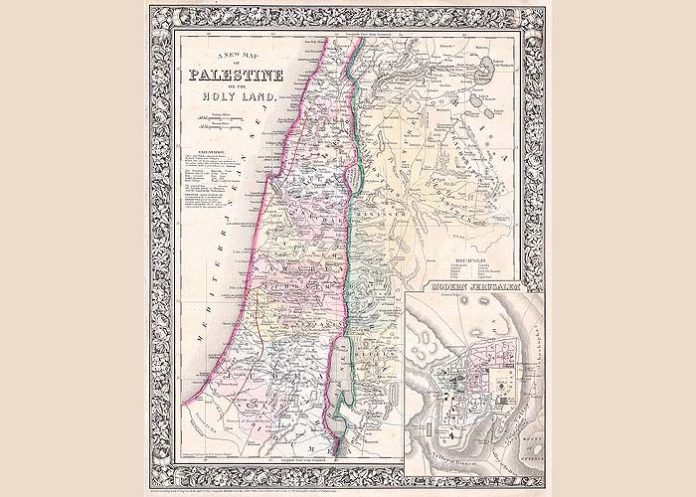By JNi.Media

The IDF Civil Administration in Judea and Samaria is examining a project of translating from Turkish registration books and documents that are being kept in its possession, and documenting land ownership in the area under military rule, NRG reported Saturday. It will be part of an effort to streamline contemporary land registration procedures, which are naturally based on past documents.
The administration has in its possession handwritten land registration books from the Ottoman, British, Jordanian and Israeli periods. Some of the books are in Ottoman, an old Turkish dialect used by the imperial bureaucracy.
It is estimated that the volume of material that requires translation from official Turkish is about 100,000 pages. Some of the registration books include the names and addresses of the landowners, alongside sale or leasing transactions. Others describe plots of land and the amounts of money paid in each transactions. Some documents are accompanied by maps of the plots.
In some cases, lands were owned by the sovereign that ruled Palestine at the time, in particular in Judea and Samaria, other land was privately owned.
The Civil Administration is currently looking for a company that would carry out the translation and typing, and compile the translated material into the information systems database. The goal of the project is to make the information available to the public and civil administration employees, in order to streamline internal processes within the organization.
Meir Deutsch, Director of Policy at the Regavim movement is critical of the Civil Administration’s slow pace when it comes to setting the record straight on who owns what in Judea and Samaria, which often results in nuisance lawsuit against Jewish land buyers.
“The fact that the Judea and Samaria land registry is still written in the original Turkish illustrates more than anything else that the area of real estate [in the Civil Administration] is lagging a generation behind what is accepted in the State of Israel and in other modern countries,” he said.
According to Deutsch, “within the State of Israel, every citizen can go online and easily locate the details of the owners of each plot of land, whereas in Judea and Samaria a Jew who wants to buy land encounters an almost impassable bureaucratic wall. The Land Registry is blocked from public scrutiny – an anachronistic remnant of the anti-Semitic policy of the Kingdom of Jordan, which forbade the sale of land to Jews.”
“Only a few days ago, the Israeli government marked the 50th anniversary of the liberation of Judea and Samaria,” Deutch noted, adding, “It is high time not only to translate the land registry books, but to allow the basic right of conducting land transactions in the conventional manner.”



It is well documented and detailed in many books and histories, that the vast majority of the Land was owned by the Ottoman Empire, that they did not as a rule give or sell any land. But in Israel they sold or bestowed small parcels of land on about 5 prominent families. They also leased or sold (not sure exactly which) land to the Montefiores and Rothschilds for settlements, around Tiveria I think in the 18th cent. (which lapsed) and later, like Petach Tikvah, etc. But in total it was a tiny amount, and only very poor land, swamp etc.
I have posted this many times, and asked how did the fellahin get “ownership” of “their” land. I also pointed out that there was a huge business in YESHA of forging “ancient” title deeds.
I myself was involved. An Arab acquaintance hauled before the Land Registry in Akko (I think) asked me to go with him. His family had been there since the crusades etc. But, ancient tattered title deed and all, (artificially made old) he eventually confessed that his family had crossed the Jordan just 5 years before and took over a deserted old large Turkish building. After a week, he said, it looked as if they’d been there for centuries. ,
I wouldn’t be surprised to find that forgers had been at the records during Mandate times, or even before, because the Turks were to somnabulent to bother keeping a proper check.